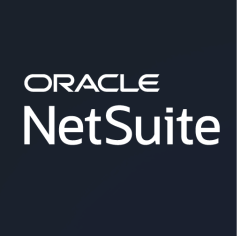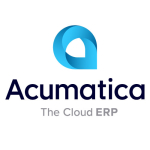What is our primary use case?
I have multiple pharmaceutical distributions. I'm currently doing two projects with companies that are what are called stevedoring companies. They're companies that load and unload these massive vessel ships that come into the ports all over the world. Containers and cruisers and things of that nature. I've also done a large 3PL shipping company. I've done a couple of manufacturing companies. I've done a couple of manufacturer distributor companies. It's a very versatile system. It can be used for a variety of businesses.
What is most valuable?
It's less about functionality today. Although the functionality is there, most systems are pretty competitive on things like financials. At that level, what makes a solution competitive is the architecture, and NetSuite has the most advanced system architecture in the market today. It was built for the cloud. It's a true cloud application. It's truly, purely web-based.
There's no infrastructure required. It's fast licensed, it's multi-tenant for releases.
I would say that the solution is highly configurable.
The solution's data structure is very referential. You can easily customize new data in the system. It's a system that's built for enormous flexibility and customization.
The system itself, the reporting dashboards, integration, API, workflows, all that stuff's strong in NetSuite. The functionality is strong.
They've got people working deeply on it. They spend incredible amounts of money on R&D and their releases are very robust and they just keep moving forward with more.
What needs improvement?
There's always room for improvement in every system. It's going to have some functional verticals that just aren't as competitive in the app, due to the fact that there are older systems that have been built for 20 years that are deep. For example, in manufacturing, there's something called process manufacturing, versus discrete manufacturing. There's a couple of systems that'll beat NetSuite on process manufacturing.
In terms of the main improvement to NetSuite is the talent itself. It's grown so fast and there are about 25,000 companies running on it, and it's a relatively newer system compared to other competitors. It's growing so fast that the talent base in the partner organization (there's about 200 of them), is pretty thin.
There's a lot of bodies. There's a lot of kids there. I call them the kids because they're people in their twenties, maybe in their thirties. If you're under 40, you are still a kid to me. What it boils down to is that I've been doing assessments for 40 years. I have five grown sons between the age of 30 and 44. Not a single one of them, if they worked around the clock for the rest of their lives, could catch up with me on experience, because in today's market people get pigeonholed and specialized. They don't get a broad experience. People aren't building systems anymore, so you don't have that depth. What it boils down to is most of these people working in these ERP projects, in all the systems, are truly not systems people.
They're actually people that just know how to push buttons and settings and workflows and reports, and spit things out. They know how to configure a system, however, they don't really know much about how it would actually do what it does, or how it's built. Therefore, the weakness in that is that when you get into business models that require some real custom configuration, they don't really know how to do that.
In today's market, young people aren't learning how to really learn a business. What's happening is a lot of systems focused work without first understanding the business that they're actually serving. That's prevalent in the NetSuite world and these newer systems, due to the fact that they've basically been staffed with and around young people who really don't have a lot of business experience. They may know a lot about that application, that system, but then not really know very much about the business. Business experience is an issue in this market today.
For how long have I used the solution?
We've worked on multiple systems, however, I've probably been engaging with NetSuite to some extent for the last seven years.
What do I think about the stability of the solution?
The solution is highly reliable. I've got a client who's been running for four and a half years flawlessly, with no outages, no errors, no failings. Of course, part of that is the architecture and the system. Part of it is we did a world-class job of implementing it. However, the bottom line is you can really mess up a system if you don't know what you're doing. That said, NetSuite itself is a highly reliable system.
What do I think about the scalability of the solution?
Scalability is pretty good. It's targeted. Oracle has its Oracle cloud product and some other junk products in between, but the two flagship products are Oracle Cloud (for tier one companies, over a billion dollars in revenue)m and then NetSuite, which is targeted for the half a billion-dollar or maybe up to billion-dollar revenue. We have four companies with over a billion dollars in revenue on NetSuite.
Up to that point, it's really very scalable. Even after that point, it's really not a matter of the system not being scalable. It's more the server and the data centers that they've sort of configured for that. You've got 25,000 companies, and 90 plus percent of them are probably in the hundred to $500 million range of revenue. Revenue is not always a good indicator, because some companies, like the company I'm in right now, is a half a billion-dollar revenue company. However, they function more like a hundred million dollar company because the invoicing they do is very large and very complex invoicing, but large-dollar transactions.
So they'll do a $25-$50,000 invoice as well. That rolls up to half a billion pretty fast. That said, the volumes aren't really there. They don't have any more volume than a retail business, or a distribution business might have with a tenth their size. You can't use revenues and bills as a total indicator every time.
I would say NetSuite would struggle to scale beyond a billion dollars if it were a retail business. That's just in terms of how it's built. It's built for the mid-market, and some limitations are there that you wouldn't hit then until you get to a billion. It's still a great system and there is a provision for buying up to more tiered levels of processing capacity. That way, very large companies can run on NetSuite.
How are customer service and technical support?
Technical support is very weak. That's because, once again, they've hired a bunch of kids. They've got kids behind the scenes doing the work and they don't necessarily retain much deep talent on the inside at NetSuite.
They mostly have a great software development group, however, their support group tends to be very young people who basically don't know much. They know the system, again, however they don't necessarily know how to interact with the business.
The best way to get systems support is really from the network of qualified partners. That's where the talent goes and that's where the money is. That's where people can make the most money. Whenever any of these people get any talent, they tend to jump ship from NetSuite and go out to work for one of the partner companies.
How was the initial setup?
Everything's complex today. It's all complex. Any system is complex. However, NetSuite's setup, what makes it easier, is there's not a lot of complexity in the actual customization. That's easier. Any system, even Microsoft's Dynamics, is going to take 30% or 40% more labor to do the same things.
NetSuite's highly configurable and it's also very structured for settings, presetting, roles, permissions, personalization, etc. If the partner that's selected is skilled, if they know the system, then the configuration works actually in a pretty straightforward manner.
There may be a lot of variabilities or a lot of complexity, mainly because clients are complex. Nobody does things the same way. If they did, they'd run out of business pretty quick due to the fact that you always have to have something that differentiates you from your competitor. All those differentiations have to be thought of and incorporated into the implementation.
What's my experience with pricing, setup cost, and licensing?
Licensing costs are all over the place. It really depends a lot on the business model. How many seats, what modules they're getting, and what kind of discount you can negotiate all will adjust the cost structure in different ways.
The discounting can range, depending on what's compelling to that model. For example, I bought these two stevedoring companies and they're old companies, they're longshoremen. They've been doing longshoremen work since clipper ships. The systems tend to be old. Nobody had ever really put a stevedoring company on NetSuite before. When I went to NetSuite to negotiate for them, I was able to get okay pricing. There's a pretty broad opportunity if we get one or two of these done. NetSuite was willing to get me a very deep discount in that case. It depends on the deal. The numbers are all over the place.
What other advice do I have?
We're not a reseller, we're a selection company. We represent the client.
The inherent weakness where you might be disappointed is not functional, because functionality can be built out. It's like buying new furniture in a house. The house is a big cost, the furniture you just need more of. More functionality can be built out readily if the architecture is good. NetSuite's architecture is so phenomenal that you can almost not even imagine. I have one subsystem that my client has, but it's an old premise-based proprietary application that no one else has. It's unique to their business, but it's about ready to fall over. I looked at it and we're going to build it into NetSuite, because NetSuite is capable of absorbing more functionality. So, it's really about architecture. And architecture and NetSuite, I couldn't even imagine what it's going to ask for there. It's really very good.
Ironically, NetSuite's kind of killing our business, because if you're doing mid market, it's going to be NetSuite or Microsoft dynamics. Everything else is not really worth the attention. Where we do selection work we don't get shared revenue. We don't get kickbacks or anything from anything we do. Our work is to help companies pick the right solution, pick the right partner, and get the implementation done. Our work has shifted much more to helping oversee the projects. We do a business assessment work, we do system selection work, we do solution, basically formulating the solution for the client. Then we negotiate for the right licensing, the right contracts, service agreements and we oversee it.
We're like a general contractor for a commercial building. What's happening is that the clients no longer have people like us inside. Basically, systems have become commoditized over the last 20 years to the point where if they've got insight IT people they're really server people. Servers, networks, virus, security, phone systems. These people don't know anything about applications.
In NetSuite's environment, there's no versioning. It's actually a release strategy. It is in the cloud, so it's multi-tenant and the releases come in and go. Obviously, they have some release numbers on each of them, however, the client really doesn't have to worry about that.
I'd rate the solution ten out of ten.
Disclosure: My company has a business relationship with this vendor other than being a customer. Enterprise Consultant













